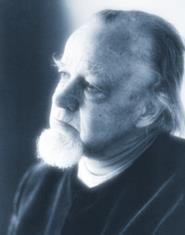
It’s been a while since I’ve posted anything. Alas, so much to be done, so little time. Here is the next set of notes and quotes from our study through Frances Schaeffer’s How Should We Then Live?
What gave rise to modern science?
The rise of modern science did not conflict with what the Bible teaches; indeed, at a crucial point the Scientific Revolution rested upon what the Bible teaches. Both Alfred North Whitehead (1861–1947) and J. Robert Oppenheimer (1904–1967) have stressed that modern science was born out of the Christian world-view.
Schaeffer, F. A. (1982). The complete works of Francis A. Schaeffer: a Christian worldview (Vol. 5, p. 157).
Based on what? What was it about the Christian world-view that ignited the era of modern science?
Whitehead also spoke of confidence “in the intelligible rationality of a personal being.” He also says in these lectures that because of the rationality of God, the early scientists had an “inexpugnable belief that every detailed occurrence can be correlated with its antecedents in a perfectly definite manner, exemplifying general principles. Without this belief the incredible labors of scientists would be without hope.” In other words, because the early scientists believed that the world was created by a reasonable God, they were not surprised to discover that people could find out something true about nature and the universe on the basis of reason.
Was this new to the Reformation?
First, the reasonableness of the created order on the basis of its creation by a reasonable God was not a distinctive emphasis of the Reformation, but was held in common by both the pre-Reformation church and the Reformers.
Was this thrust to understand the natural world only among those in the Protestant Reformation?
These creative stirrings are rooted in the fact that people are made in the image of God, the great Creator, whether or not an individual knows or acknowledges it, and even though the image of God in people is now contorted.
The world-view determines the direction such creative stirrings will take, and how—and whether the stirrings will continue or dry up.
Whether the stirrings will continue or dry up…what does he mean by that? What examples does he give: Chinese, Arab (fate), Greek.
The Greeks, the Moslems, and the Chinese eventually lost interest in science. As we said before, the Chinese had an early and profound knowledge of the world. Joseph Needham (1900–), in his book The Grand Titration (1969), explains why this never developed into a full-fledged science: “There was no confidence that the code of Nature’s laws could ever be unveiled and read, because there was no assurance that a divine being, even more rational than ourselves, had ever formulated such a code capable of being read.”
Schaeffer, F. A. (1982). The complete works of Francis A. Schaeffer: a Christian worldview (Vol. 5, pp. 163–164).
Was the creativity in the sciences only brought about by Christians?
No, many were not consistent Christians.
But, what made the difference?
They were all living within the thought-forms brought forth by Christianity. And in this setting man’s creative stirring had a base on which to continue and develop.
So, here is the big ten million dollar question for me:
If it is the Christian base that spurs science, why did this not happen prior to the Reformation?
Schaeffer points out that the Renaissance had an influence and the awakenings of the Middle Ages “exerted their influence.” But, it was because the pre-Reformation Church was trapped in the mindset based on human authority rather than observation. Aristotle reigned supreme, pointing to reasoning about the natural world through logic rather than just watching and testing it with the expectation of predictable results.
In other words, skepticism of human assumptions broke the stagnation. But, as is noted at the end of the chapter, skepticism of human assumptions, coupled with the biblical world-view released the creativity of the curious. The natural world reflected the Person Who created it and He created it with cause and effect.
More importantly to me, the scientists of that era were not merely concerned with the how, but also the why. Philosophy was not yet divorced from science. Or rather, Naturalistic Materialism as a philosophy had not yet overshadowed creative scientific thought.
Many of them were personally Christians, but even those who were not, were living within the thought-forms brought forth by Christianity, especially the belief that God as the Creator and Lawgiver has implanted laws in His creation which man can discover.
On the Christian base, one could expect to find out something true about the universe by reason. There were certain other results of the Christian world-view. For example, there was the certainty of something “there”—an objective reality—for science to examine.
Cause and effect does not mandate that we are part of a machine. We are in what he calls, “an open universe.” God and man are outside of the uniformity of natural causes.
Of what significance is this?
There is a place for God, outside of the natural order and above the natural order, but there is also a proper place for man – who is not God, but at a point in time can change the direction of natural order.
In what way can man change the direction of the natural order?
First thing I think of is medicine. What others can you think of?
Leave a Reply